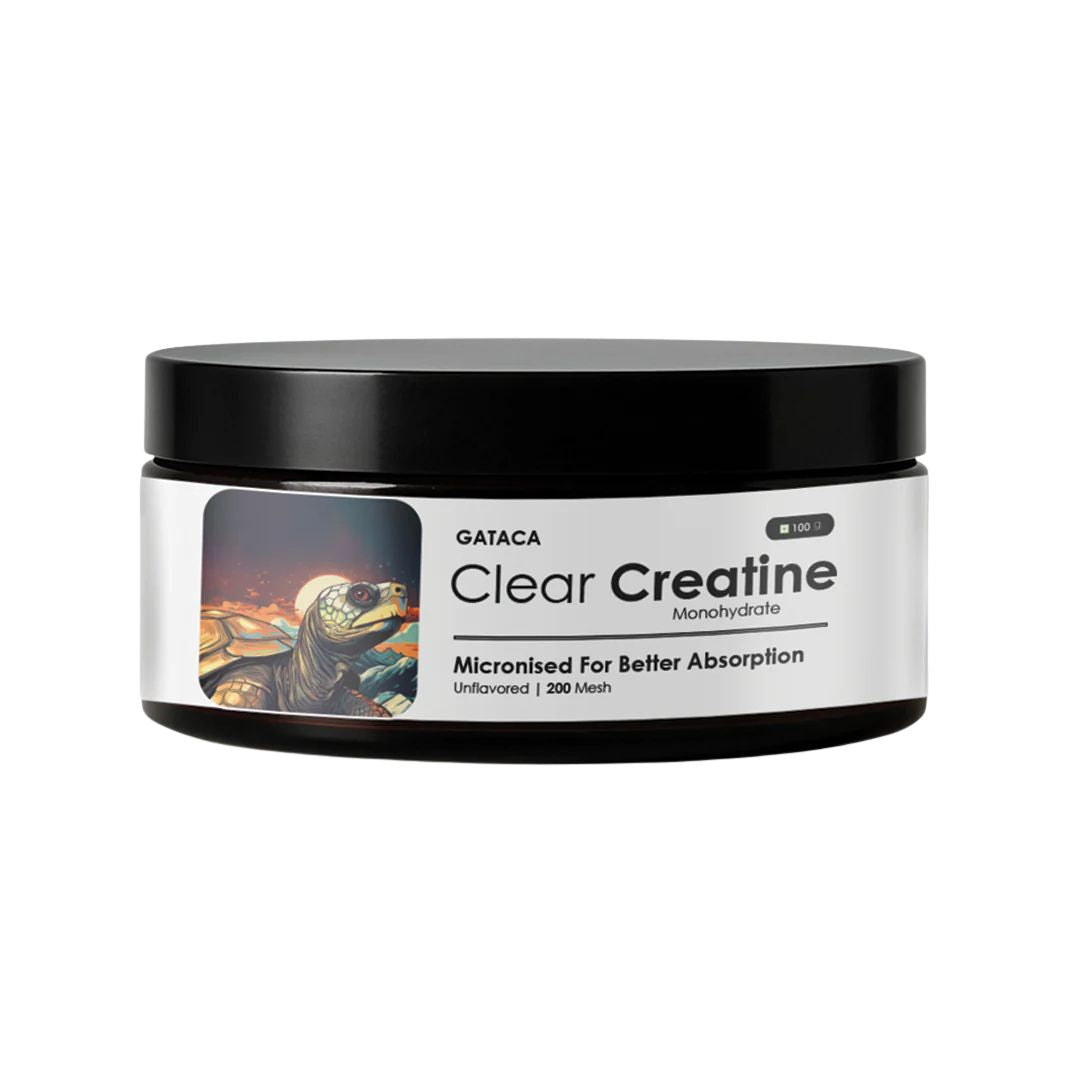Creatine For Brain Health-
For years, creatine has been boxed into a stereotype, pigeonholed as the go-to powder for protein shake enthusiasts with bulging biceps and backward caps, its brilliance hidden beneath layers of gym bro culture. But what often escapes that narrow framing is its remarkable role in brain health, where it quietly fuels cognition, focus and mental stamina without ever demanding a single rep. Though humble in appearance and pretty unremarkable in taste, creatine may just be one of your most underrated cognitive allies.
Non-Lifter Creatine Benefits-
Now, let’s step away from the squat racks and protein counters and talk about the rest of us- the ones who prefer long walks to deadlifts, who stretch sporadically, who have never tracked macros or referred to a shake as a “post”, because the truth is that creatine doesn’t care if you lift weights or not: your cells still need energy, and this molecule still matters, regardless of your gym attendance. For vegetarians and vegans, which includes a sizable slice of the Indian population, creatine becomes even more relevant, because it’s naturally found in animal-based foods like red meat and fish, meaning that people who eat plant-based diets are often running slightly lower on their baseline creatine stores. This could contribute not just to fatigue but also to slower recovery and mental fog that doesn’t quite respond to more coffee or motivational quotes.
The beauty of creatine lies in its simplicity: a scoop a day, mixed into water, juice or a smoothie. No fancy timing, equipment or cycling needed, and within a few weeks, many people notice better stamina, reduced muscle soreness, slightly sharper focus and a curious absence of that drained, end-of-day depletion that used to feel like a given. It’s not a stimulant, so it won’t jolt you into productivity or make you feel jittery, but it does help your body keep up with itself, especially during those moments when you’re not quite sick but are not thriving either, stuck in that low-grade sluggishness that modern life often delivers in disguise.
Creatine For Women And Aging-
As women age, particularly during perimenopause and menopause, hormonal shifts can affect muscle mass, mood, memory, bone density and even sleep. While there’s no miracle supplement that fixes all of those things at once, creatine happens to support several of them in meaningful, measurable ways, without requiring an overhaul of your diet or your identity.
It’s also worth noting that women, especially those who have been conditioned to avoid weight training or view strength as a male domain, often begin losing muscle mass earlier than necessary, not because of biology alone, but because of social conditioning. Creatine, when paired with even moderate physical activity, like yoga, brisk walking or basic resistance work, can play a quiet but critical role in preserving independence, mobility and confidence into later years.
In a culture like ours, where many people eat mostly vegetarian diets, juggle long workdays, experience chronic stress and often overlook their own physical recovery, creatine might just be one of the simplest, safest and most effective ways to give your body and brain a little more capacity to handle it all, not just during workouts, but across the entire messy, beautiful, tiring spectrum of adult life.
Conclusion
Creatine is not some protein-packed caricature, reserved for gym rats and competitive athletes, nor is it a chemical shortcut or a trendy powder destined to collect dust in your kitchen cabinet: it’s a naturally occurring, well-researched, body-friendly compound that supports how you think, move, recover and age, and it does all of this quietly, efficiently and without demanding much in return. And no, you don’t need to change your routine, join a gym or start calling everyone “bro” to use it. You just need to be open to the idea that something as small as a daily scoop of creatine can support the very things that matter most: your clarity, your energy, your strength and your resilience, even if no one ever sees the work you’re doing on the inside.
FAQs-
1. What is creatine and how does it work?
Creatine is a naturally occurring compound that helps your body produce energy, especially during short bursts of activity. It supports ATP regeneration, which fuels your muscles and brain for improved performance, recovery and mental clarity.
2. Is creatine beneficial for people who don’t lift weights?
Yes. Creatine supports energy at the cellular level, which benefits everyone, not just athletes. It helps improve mental stamina, daily recovery and general vitality, especially in people with low dietary intake like vegetarians.
3. Can creatine support brain function and memory?
Studies suggest that creatine enhances brain energy metabolism, improves memory and reduces mental fatigue. It’s particularly helpful during sleep deprivation, high-stress situations or cognitive tasks that require sustained focus.
4. What’s the best daily dose of creatine for non-athletes?
A daily dose of 3 to 5 grams of creatine monohydrate is generally considered safe and effective for non-athletes. There’s no need to load or cycle, just take it consistently for cumulative benefits over time.
5. Can creatine be combined with other longevity supplements?
Absolutely. Creatine pairs well with NMN, magnesium, vitamin D and omega-3s. Together, these supplements support energy, cognition, bone health and cellular repair. Always consult a healthcare provider before combining supplements for best results.






